Best Uruguayan documentary movies
A curated collection of popular documentary movies from Uruguay.
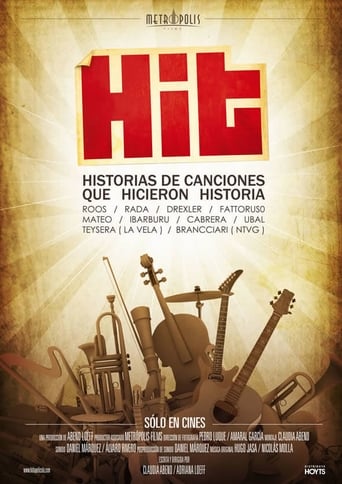
Hit (2008)
Hit (2008)
Through the memories and confessions of some of the most important names in Uruguayan music, the film brings back to life the stories of the songs that defined a country and that, in some cases, helped change history.
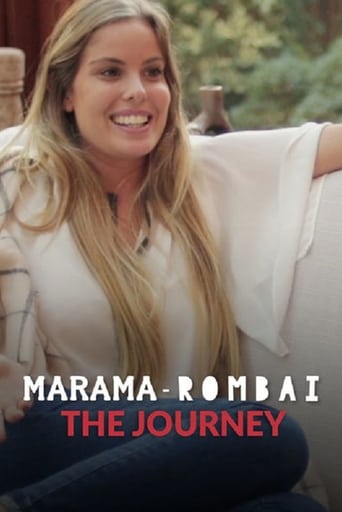
Márama - Rombai: The Journey (2016)
Márama - Rombai: The Journey (2016)
Popular South American bands Márama and Rombai share footage of behind-the-scenes antics and discuss their sudden rise to stardom.

Jaime Roos at 10 (1994)
Jaime Roos at 10 (1994)
At ten o'clock on the night of 20 November 1993, in the Barrio Sur neighbourhood of Montevideo, Jaime Roos began the first of 42 concerts on a tour that lasted three months and included performances in all 19 departments of the country. In total some 300,000 saw him play. This documentary captures the essence of that unique tour and it is a crucial contribution to our understanding of Jaime Roos and his position in Uruguayan music towards the end of the 20th century.
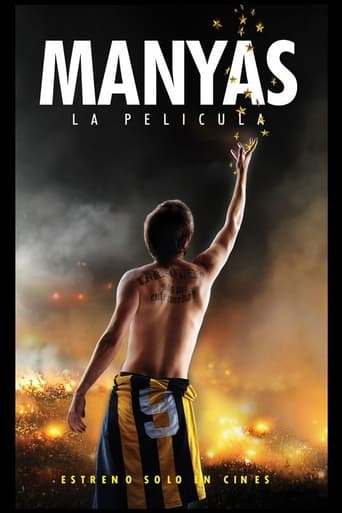
Manyas, La Película (2011)
Manyas, La Película (2011)
More than a film about football, this documentary is the portrait of a passion. Through several testimonies, what is shown is the feeling of the fan of Peñarol and what he is capable of doing for the team of his loves. From the largest flag in the world to the most spectacular receptions, including tattoos, anecdotes, promises and much more.
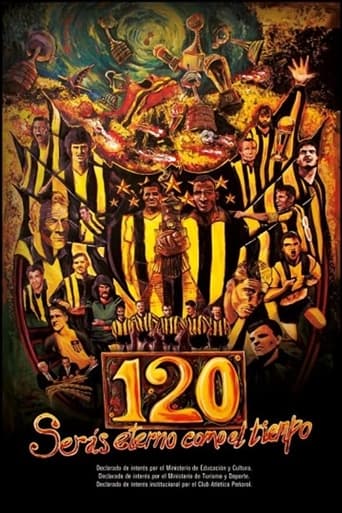
120, Serás eterno como el tiempo (2012)
120, Serás eterno como el tiempo (2012)
It tells the history of Peñarol from 1891 to the 2011 Copa Libertadores, of which the club was vice-champion. After more than six years of production, it brings together more than a hundred interviews carried out with the protagonists of this story: retired and current players, presidents and technical directors of the club, historians, sociologists and many other actors linked to the institution.
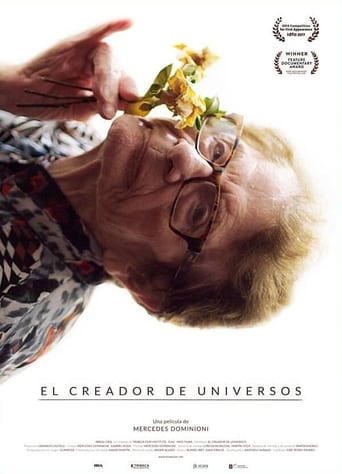
The Creator of Universes (2017)
The Creator of Universes (2017)
A sixteen year old with Asperger's creates telenovelas at home with his 97-year old grandmother.
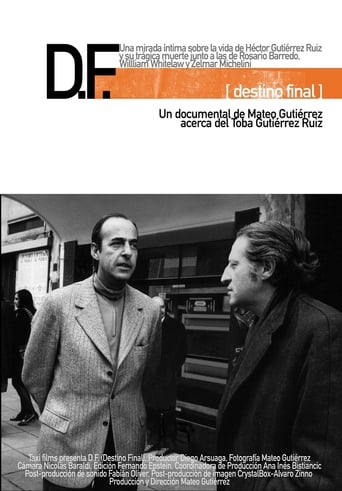
D.F. (final destiny) (2008)
D.F. (final destiny) (2008)
Documentary by Mateo Gutiérrez about the life of his father, Héctor "Toba" Gutiérrez Ruiz (1934-1976), which includes interviews with people who witnessed moments in the life of the former president of the House of Representatives, assassinated by the Uruguayan dictatorship
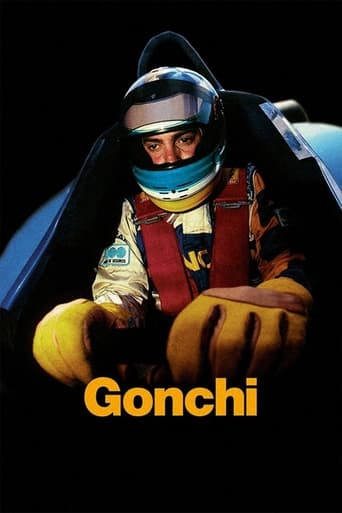
Gonchi (2015)
Gonchi (2015)
The story of a Uruguayan car racer that dreamt about being in F1 and did all that was possible to reach his goal. When he was about to reach his best prize, he died in a car accident at the CART World Series tests in Laguna Seca, US. This is a story about inspiration and overcoming obstacles. It portrays that nothing is impossible in life if there is dedication and love. A story about a young man that went through many hardships and that raced with the best. He came from a far away country with no tradition in the international automobile racing world.

Pepe's Dreams - Movement 2052 (2024)
Pepe's Dreams - Movement 2052 (2024)
On a planet headed for climate collapse, where humanity pursues a predatory model of development and consumption, the philosophy of former Uruguayan President Pepe Mujica raises an alarm in all of us. Pepe’s dream is to leave a better planet for future generations. However, time is running out and there is no way back.

Alexis Viera: A Story of Surviving (2019)
Alexis Viera: A Story of Surviving (2019)
After being shot during a robbery in Colombia and losing sensation in his legs, Uruguayan soccer star Alexis Viera finds a new sense of purpose.
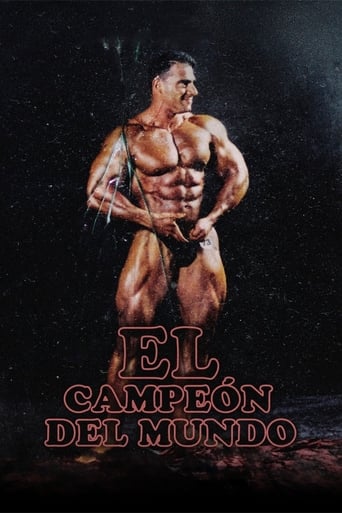
The Champion of the World (2019)
The Champion of the World (2019)
Ten years after winning a world title in bodybuilding in Russia and becoming a star of said discipline in Mexico, Antonio Osta (43) leads a life of austerity in the Uruguayan rural town where he grew up. He resides there with his son Juanjo (17), a sensitive teenager who keeps him company and confronts him openly. Suffering from acute kidney disease which keeps him from competing professionally, Antonio is stuck in limbo, halfway between his glorious past and the impossibility of being who he once was. However, he is unwilling to give up his lifestyle, even if it kills him. In an attempt to reinvent himself, and seeking a better future for his son, Antonio plans a comeback to the Mexico bodybuilding scene, where he may relive his glory days.
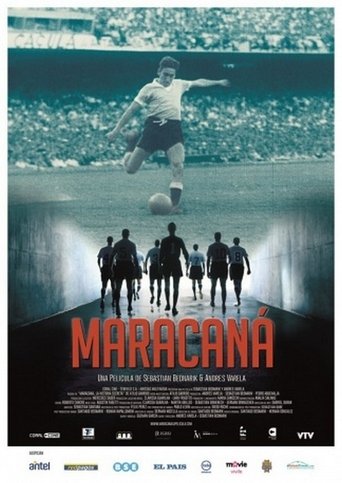
Maracaná (2014)
Maracaná (2014)
The unexpected victory over Uruguay in the World Cup Brazil 1950 continues to have social and political ramifications for both countries.
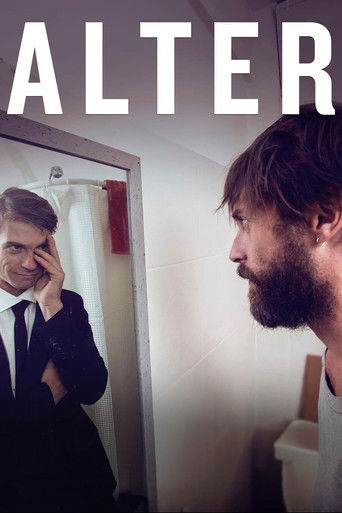
Alter (2022)
Alter (2022)
After being fired from his job, a psychologist and frustrated songwriter begins his career as an imitator of Latino superstar Luis Miguel, gaining local fame while singing someone else's songs as he questions who he wants to be.
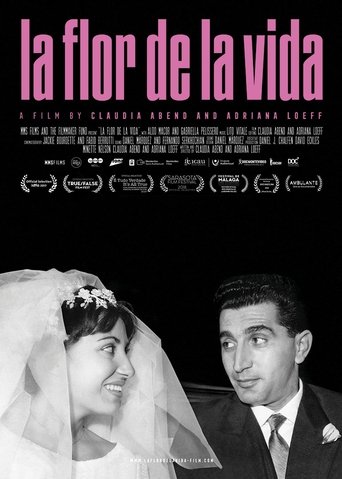
La Flor de la Vida (2017)
La Flor de la Vida (2017)
Aldo, an exuberant 80-year-old man, and Gabriella, his introverted wife for the better part of five decades, candidly reflect on the deterioration of their marriage, much of which Aldo has captured on video. Watching these evocative home movies, looking through photos and hearing the couple's stories, we are transported through the glorious and dreamy moments of a young, beautiful couple in love. But as the façade of those picture-perfect moments fades away, Aldo and Gabriella are forced to ruminate on the mistakes they've made and the people they no longer are. Adriana Loeff and Claudia Abend have crafted a heartfelt film about the power of love, the universality of heartbreak, and an inescapable truth: We all will grow old with less-than-perfect grace.
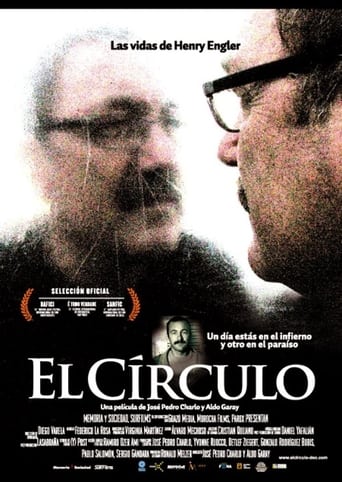
The Circle (2008)
The Circle (2008)
Award-winning documentary about how one Uruguayan leftist survived solitary confinement during the dirty war. The story of former Tupamaro guerilla fighter, Henry Engler, whose prolonged confinement and torture during the Uruguayan dictatorship led to a mental breakdown. Today Dr. Engler is a Swedish citizen and a scientist renowned for his research into Alzheimer’s disease. In this impressive documentary, the scientist visits the places of his painful past, painting an intimate and disturbing portrait of prison life under the dictatorship.
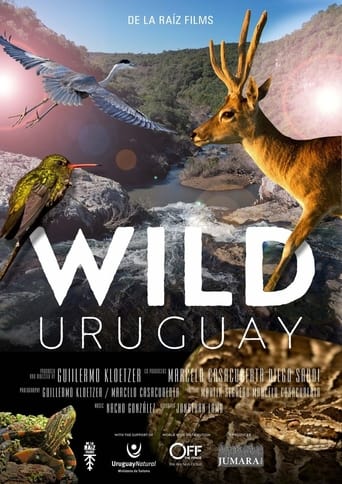
Wild Uruguay (2020)
Wild Uruguay (2020)
Today we know that Uruguay is not only a gently undulating peneplain, in this country different ecosystems are found; species from the Pampas, the Atlantic Forest and the Chaco Forest come face to face, giving rise to unexpected scenes.
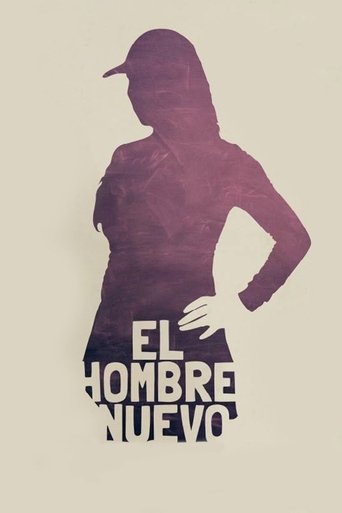
The New Man (2015)
The New Man (2015)
At the tender age of twelve, Roberto supported the Sandinista revolution in Nicaragua and fought for education and social reforms. He was to continue his political struggle fighting alongside the communist Tupamaros in Uruguay. Thirty years later he is struggling to live his life as a woman named Stephanía and striving to be accepted by both society and his family.
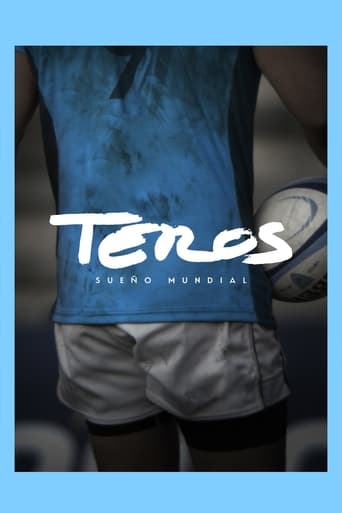
Teros, sueño mundial (2015)
Teros, sueño mundial (2015)
The campaign of the Uruguayan rugby team, nicknamed "Los Teros", during the 2015 Rugby World Cup qualification, and the amateur character of its players that contrasts against the professionalism of their group rivals.
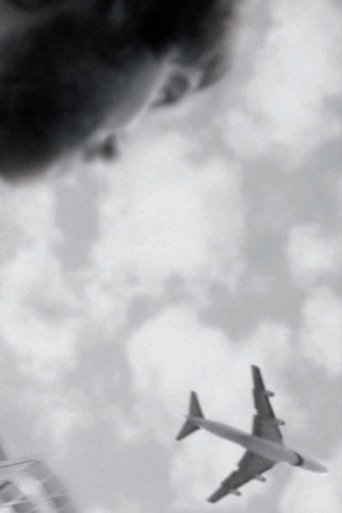
Asylum (2007)
Asylum (2007)
This documentary focuses on a little-known episode in the recent history of Uruguay: how hundreds of Uruguayan citizens took refuge in the Mexican embassy at the time of the military dictatorship. Between 1975 and 1976, Mexico was the only country whose embassy gave shelter to people persecuted by the regime, and this sparked off a difficult period in the relations between the two nations. We learn about conditions at the embassy at that time and how the fugitives lived. Sixteen of the men and women involved talk about what that period was like and the events that led up to this confrontation between the two countries. The documentary is also a homage to the Mexican ambassador, don Vicente Muñoz Arroyo.

Cachila (2008)
Cachila (2008)
The Silva family is pioneer and a role model within the community; it shows values and the goal to not let the candombe tradition fade away. Not only do they have an internal hierarchy, but also in his neighbourhood, Waldemar “Cachila” Silva is a respected leader. Cachila decide to pass on his legacy to his sons Matias and Wellington, who should now lead the family business, afro descendants playing candombe, a drum rhythm for the carnival contest and keep the privilege place obtained by the family. Patriarchy, hierarchy and cultural traditions are the concepts that drive this documentary about the life of a man of African descent and a dysfunctional family trying to perpetuate its power, which is crucial for the future of a culture.
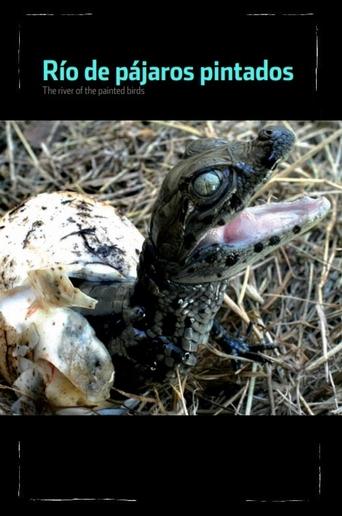
The River of the Painted Birds (2008)
The River of the Painted Birds (2008)
A north to south canoe trip along quiet bodies of water of Uruguay, exploring the fauna and flora amidst the wilderness.

Bicycle Race at the Arroyo Seco Cycle Track (1898)
Bicycle Race at the Arroyo Seco Cycle Track (1898)
A record of a bicycle race held at the Arroyo Seco velodrome, which was located in the Quinta de Iglesias street (modern day Agraciada) by Entre Ríos, Zapicán and San Fructuoso.
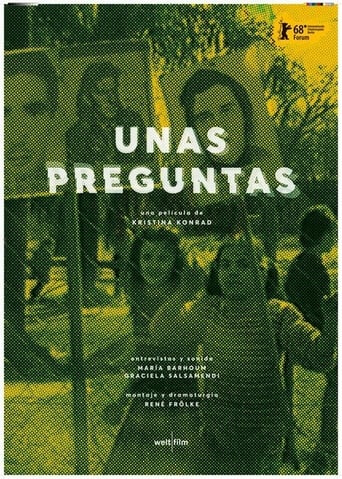
One or Two Questions (2018)
One or Two Questions (2018)
In 1986, the Uruguayan Parliament passed a law granting amnesty for all crimes and human rights violations committed by the military and police during the dictatorship (1973-85). This law of impunity prevented the clarification demanded by the relatives of those who had disappeared and been murdered by the former regime. A public initiative arose calling for a referendum in which the law be subject to the vote of the people. Unas preguntas uses U-matic footage, mostly of interviews recorded on the streets of Uruguay between 1987 and 1989, to present a time capsule of the period.
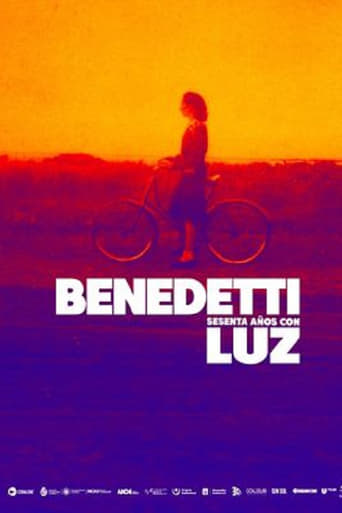
Benedetti, 60 años con Luz (2022)
Benedetti, 60 años con Luz (2022)
Mario Benedetti and Luz López met when they were teenagers, he became a writer and she became a public servant. Together they shared life, exile, failures, success, friends and love. Sixty years and eighty books later, Luz suffers from Alzheimer's, forgets all of her past, and finally she forgets Mario just before she died. The film reconstructs this memory with an eye set on the author and the love that bound them together.
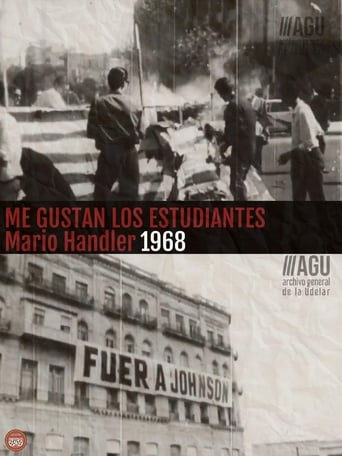
Me gustan los estudiantes (1968)
Me gustan los estudiantes (1968)
Students protest during the Chiefs of State conference at Punta del Este. Counterpoint between presidents, students and repressive policemen.
A Holiday in Uruguay (1951)
A Holiday in Uruguay (1951)
Presents the activities of a young woman on a holiday.
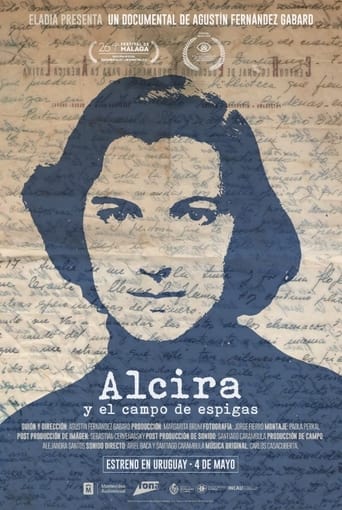
Alcira y el campo de espigas (2023)
Alcira y el campo de espigas (2023)
Alcira Soust Scaffo is a Uruguayan poet who became a legend by hiding in a bathroom for the 12 days that the Mexican army occupied a university in 1968. A woman whose life oscillated between delirium and sanity, between rooftops, trees and houses. A forgotten and unforgettable poet.

Portrait of My Father (2022)
Portrait of My Father (2022)
Juan Ignacio Fernández Hoppe was just eight years old when his father’s body was found on a beach. His mother, a psychiatrist, decided an autopsy was unnecessary, even though his father had been depressed and had psychiatric medication among his belongings. Thirty years later, the filmmaker tries to find out what happened, who his father was and how his mother arrived at her decision.
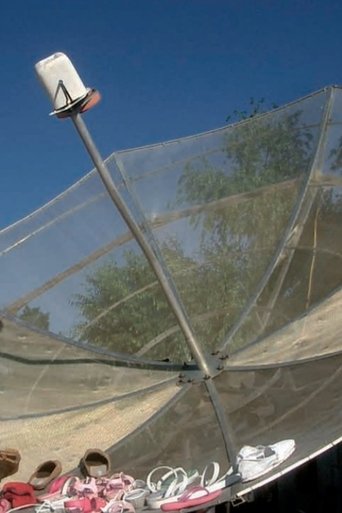
Carnaval in Baltasar Brum (1997)
Carnaval in Baltasar Brum (1997)
Baltasar Brum is a town of three thousand souls in the department of Artigas. In 1986 the train station was closed down and the community was in danger of disappearing altogether, but today it is still there and in fact it is growing. The local samba “schools”, which are similar to these organizations in Brazil except that they speak Spanish, tell the story of the town and its outstanding figures against a background of local and more universal events. The documentary shows how carnival is celebrated in this Uruguayan border town.
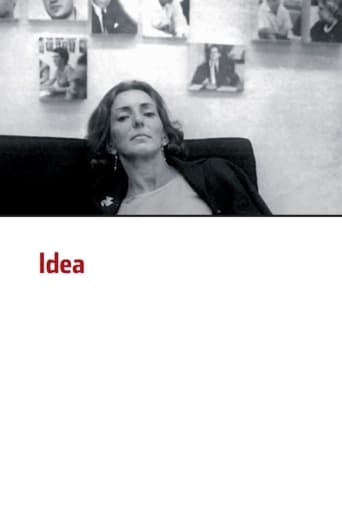
Idea (1997)
Idea (1997)
Idea approaches the figure of Idea Vilariño, considered as one of the greatest Spanish-language female poets. Her literary work, especially her poetry, is acclaimed by critics and public alike, a rare case in the Uruguayan culture scene. With her own testimony, pictures, poems, songs and archive footage, this documentary offers an in-depth look at the essence of Idea Vilariño's poetic universe in a frank adherence to her literary and human posture. Her childhood, her ghosts, her desolate vision of a godless world, the stormy burden of suffering from her relationship with Juan Carlos Onetti and the commitment assumed with the issues of her time define the various facets of this woman.